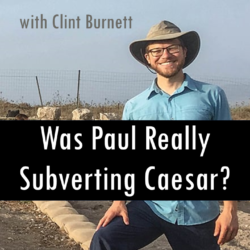This is part 1 of a series of posts called, “Identifying and Subverting Cultural Narratives.”
Last week I learned how to surf at Jacksonville Beach in Florida. While I was in the ocean, I constantly battled the waves pushing me towards the beach and the undertow pulling me back towards the sea. However, it was not until I came out of the water a quarter of a mile down from our place on the beach that I realized a subtler current pulling me sideways the whole time. This is a good illustration of how our culture slowly moves us over time. We spot the audacious behavior of celebrities and politicians easily enough while missing the subtle currents pulling us sideways, away from what God says is right. Even so, we cannot allow this world to squeeze us into its mold:
Romans 12.1-2
Do not be conformed to this world, but be transformed by the renewal of your mind, that by testing you may discern what is the will of God, what is good and acceptable and perfect.
We have two options: either we will be conformed or we will be transformed. We must wage the mental warfare of constant renewal or else we will never experience the transformation God wants for us. We need to test and discern. We cannot remain passive, deceiving ourselves into believing we are impervious the culture’s constant tug. If we do not hone our ability to identify and combat cultural narratives then we will fall out of tune with God’s good, acceptable, and perfect will.
How Does the Culture Affect You?
Our culture is in the air we breathe. It is impossible to escape, unless you go live in a cabin in the woods, I suppose. Billboards, TV shows, books, viral videos, memes, magazines in the checkout aisle, our friends, the news, and a thousand other outlets bring our world’s way of thinking into our lives. This constant bombardment adjusts our sense of what’s normal, reprogramming our minds slowly over time. For example, when skinny jeans first came out, my friends and I ridiculed them for how uncomfortable they looked. After they had been popular for a little while I remember hearing a Pandora ad that went something like this:
“Tired of girls ignoring you? Are you still wearing those outdated baggy jeans? It’s time to get back in the game with skinny jeans.”
I vividly recall how this silly message struck me. It was the first time the whole idea of wearing skinny jeans sounded plausible to me. Before that it was just a joke. After a couple of more years, I started feeling uncomfortable in my old jeans as everyone around me converted to skinny or slim jeans. This slow cultural pressure rewrote my sense of style in this area. I never verbally agreed or even mentally assented to this change, but it happened nonetheless and today I don’t have baggy jeans anymore. Obviously this is a trite example, but it shows how subtly the culture influences us.
Now, our culture is not all bad. Early 21st century Americans do have some admirable ideals as well. For example, people generally believe that bullying is wrong, humanitarian aid is good, drunk driving is bad, and cooperation is good. However, our world also believes that Christianity is intolerant, everything is ok if it doesn’t hurt anyone, and cohabitation before marriage is good. Thus, we have to learn to discern between the good and the bad. Here is how Walter Brueggemann framed this problem:
- Everybody lives by a script. The script may be implicit or explicit. It may be recognized or unrecognized, but everybody has a script.
- We get scripted. All of us get scripted through the process of nurture and formation and socialization, and it happens to us without our knowing it.
- The dominant scripting in our society is a script of technological, therapeutic, consumer militarism that socializes us all, liberal and conservative.
- That script, enacted through advertising and propaganda and ideology especially on the liturgies of television, promises to make us safe and to make us happy.
- That script has failed… the script of military consumerism cannot make us safe and it cannot make us happy. We may be the unhappiest society in the world.
- Health for our society depends on disengagement from and relinquishment of that script of military consumerism. This is a disengagement and relinquishment that we mostly resist and about which we are profoundly ambiguous.
- It is the task of ministry to de-script that script among us. That is, to enable persons to relinquish a world that no longer exists and indeed never did exist.
- The task of de-scripting, relinquishment, and disengagement is accomplished by a steady patient intentional articulation of an alternative script that we say can make us happy and make us safe.
- The alternative script is rooted in the Bible and is enacted through the tradition of the Church. It is an offer of a counter-metanarrative, counter to the script of technological therapeutic military consumerism.[1]
The world is scripting you, rewriting what you think can make you safe and happy. We hear that if we just kill the right people the world will be “safe for democracy,” that if we just find the right self-help regimen then we’ll be happy, that if we can just buy the right thing then we’ll feel good about ourselves, that if we can just invent the right technology then we can solve the world’s problems. These ideas are all around us and they profoundly affect how we think. Here is a story to help put this into perspective.
A husband and wife move into a new house. At breakfast the wife sees the neighbor’s laundry hanging outside. She remarks to her husband, “Wow, their clothes are not very clean.” The next morning she looks out and sees a similar scene and says, “Maybe I should go over there and tell her what laundry detergent I use.” However, the third day, she looks out and sees very clean laundry hanging up. She says, “Wow! I guess our neighbor figured out how to do laundry properly.” Her husband replies, “This morning I got up early and cleaned the windows.”
What happened here is the wife did not realize that she was experiencing the back yard through a filter—dirty windows. She was convinced that she could see clearly and had an accurate assessment of objective reality, but in actuality, her neighbor was completely competent at doing the laundry the whole time. The problem is two-fold: (1) there’s a filter distorting reality and (2) she didn’t know it was there. This is our problem. We look at the world and think we see it clearly. We believe our opinions and theologies are patently true and those who disagree with us are naïve, deceived, or crazy. This is even more startling when it comes to the bible. We read it and come away with doubts and some parts of it begin to feel far-fetched. Perhaps we reinterpret these passages to conform to what we know is right; maybe we ignore them; possibly we even lose faith as a result. We do not realize that cultural forces are foisting a filter over our eyes, distorting our view of reality.
Defeaters and Implausibility
Christianity never lines up perfectly with any culture. There will always be areas of overlap and conflict. Thus, a particular culture’s “common sense” makes it hard for people to comprehend or commit to the gospel message. Beliefs that contradict a particular idea are defeaters. Tim Keller provides a helpful example of how defeaters vary from place to place:
[I]n the West it is widely assumed that Christianity can’t be true because of the cultural belief there can’t be just one “true” religion. But in the Middle East, people have absolutely no problem with the idea that there is just one true religion. That doesn’t seem implausible at all. Rather there it is widely assumed that Christianity can’t be true because of the cultural belief that American culture, based on Christianity, is unjust and corrupt. (Skeptics ought to realize, then, that the objections they have to the Christian faith are culturally relative!) So each culture has its own set of culturally-based doubt-generators which people call ‘objections’ or ‘problems’ with Christianity.[2]
This leads to the next problem. We imbibe a worldview throughout our lives as the world socializes us. When we first become Christians, we retain our old worldviews and adapt Christianity to our way of thinking. We all come to Christ because of a need we feel he can meet. However, if we haven’t allowed the bible to reshape our worldview, when Christianity causes problems in our lives, we are likely to ditch it and go on looking for the next spiritual understanding that can help us cope with life. We need to adopt Christianity and then let it adapt our minds to its worldview—God’s worldview.
Jesus as an Example
Jesus is the quintessential man, the only one who always obeyed God. He’s God’s messiah, son, and the greatest rabbi who ever lived. Furthermore, Jesus lived in a much more homogeneous society than ours. First century Jews in Galilee and Judea shared a tremendous amount of mental furniture. For example, everyone agreed that God is the creator, that they should obey the Torah, and that idolatry was wrong. Even so, Jesus’ ministry was constantly beset with conflict. They criticized him for his interpretation of the Law (Sabbath, purity, divorce); they challenged his legitimacy, attributing his exorcisms to Beelzebul and demanding a sign; they balked at his style of ministry (forgiving sins, associating with sinners, etc.). In return, Jesus rebuked his enemies for their pride, greed, and hypocrisy. So, even in a bible-based culture, Jesus didn’t fit in completely. So, if Jesus who lived better than anyone before or after him, had to constantly challenge the reigning paradigms of his day, should we expect two millennia later in a post-Christian, post-modern, society that we can just go with the flow? Of course not! We need to put in the effort to detect the filters our society is putting over our eyes so that we can (1) understand our own doubts better and (2) share the gospel with others in a way that makes sense.
Evangelism
This all brings me to the issue of sharing the gospel with outsiders. If we share our faith in our own categories of thought, that person’s eyes will probably just glaze over as we wax eloquent on sin, justification, and eternal life. What if instead we told the old story in such a way that the unbeliever found it attractive? Keller puts it this way:
First, the gospel must be presented briefly but so vividly and attractively (and so hooked into the culture’s base-line cultural narratives) that the listener is virtually compelled to say, “It would be wonderful if that were true, but it can’t be!”[3]
Next you can go to work asking about the person’s defeaters to Christianity. You can deconstruct them and show how the culture’s way of thinking doesn’t work whereas what God says really does. Lastly, you can share the gospel with them in all its glory. This simple strategy, what Keller calls “a sandwich of three layers,” can really help you reach people with God’s magnificent message of salvation today. Here is an example conversation for how this might play out, based on the cultural issue of living together in harmony:
Christian: “The God of the bible plans to heal the world in the age to come when he will have people from every tribe, race, and language united, living in harmony enjoying his glory in a renewed world. Jesus died to heal the breach between us and God so that we could become one with God and each other. God raised him from the dead proving that Jesus is the qualified leader who can teach us and show us how to get along in a conflicted world.”
Non-Christian: “That sounds wonderful, but I can’t believe it’s true.”
Christian: “Why not?”
Non-Christian: “Well, isn’t Christianity all about excluding people like gays? Don’t Christians think they are the only ones who are saved? In fact, I would say, Christianity is part of the problem with the world since it divides people from each other.”
Christian: “I hear what you are saying. How do you suggest we deal with this issue?”
Non-Christian: “I think if we could all just recognize that we are part of the same human family, then we could get along with each other. If people could realize that they are all brothers and sisters, mothers and fathers, regardless of their skin color, nationality, or religion, then the world could enjoy peace.”
Christian: “I’m not sure that message has the power to change lives. For example, what about when one member of that human family enjoys bullying those who are weaker? Do you think telling such a person that he is a member of the human family will change his heart? Do you think we could visit a maximum security prison and tell a rapist this and it will turn everything around for him? Will he say, ‘Oh, I didn’t realize that my victim was part of the human family? Now that I know that I’ll stop raping women.’”
Non-Christian: “I suppose it might not work for everyone.”
Christian: “Let me tell you my story. I was hopelessly narcissistic, not caring a lick about anyone unless I could get something from them. When I came to Christ, he showed me true love and it changed me from the inside out without counseling, drugs, or prison. Today, when I see a Muslim or a homosexual or a bully, do you know what I think? I think, how can I help them experience what I experienced. I’m not better than they are. My sins are probably worse.”
Non-Christian: “Yeah, but what if they don’t want your message? What then?”
Christian: “If they don’t want the message, Jesus teaches me to love them. Even if they make themselves out to be my enemies, I should show them love, and if necessary die for them, because that’s the example of Jesus. How would you like to join a community of those whose mission it is to give the world a foretaste of the healing God intends to bring about when his son returns?
Obviously, this conversation is a tad artificial, but it shows how hooking our gospel presentation to the culture can help us deliver the message in a way that pulls people in. It also demonstrates one of the most effective ways of dealing with defeaters. Rather than starting by giving evidence or logical argumentation for your position, first ask them what their proposed solution is. Doing so, focuses the conversation on what really matters to the person and helps to surface their own personal philosophy that blocks them from perceiving the gospel as plausible.
In subsequent weeks, I intend to identify and subvert several of the major cultural narratives that challenge Christianity. Check out part two of this series: Hyper-Individualism.
[1] Walter Brueggemann, “19 Theses” in The Emergent Theological Conversation, 2005, accessed May 5, 2016 on http://www.patheos.com/blogs/paperbacktheology/2014/04/walter-brueggemanns-19-thesis-revisited-a-clarification-from-brueggemann-himself.html
[2] Tim Keller, “Deconstructing Defeater Beliefs: Leading the Secular to Christ” Redeemer Presbyterian Church, accessed May 4, 2016, http://www.case.edu.au/images/uploads/03_pdfs/keller-deconstructing-defeater.pdf, p. 1
[3] Keller, p. 3.








I can see that how over time one is programmed to accept the cultural norm, and when one comes to the faith it is hard to reprogram our mind. Growing up in the 50′-60’s movies were pretty tame compared to now. Over time they became more blatent in their protrayal of sex and violence. Today when I try to watch a Christian movie it boors the heck out of me, I’d perfer to watch John Wick, Jason Bourne or the Expendables.
So now when one comes to the faith they are whacked upside the head with this need to deprogram that mind desensitive programmng put in by marketing & advertising manipulation. It ain’t easy to change by any means. It does take the spirit to help rearange or get rid of thought patterns of the mind and clean house. We have to do the renewing of the mind, we have to examine what is in our mind and determine what needs to be put in the shredder to be deleted or what is ok to keep.